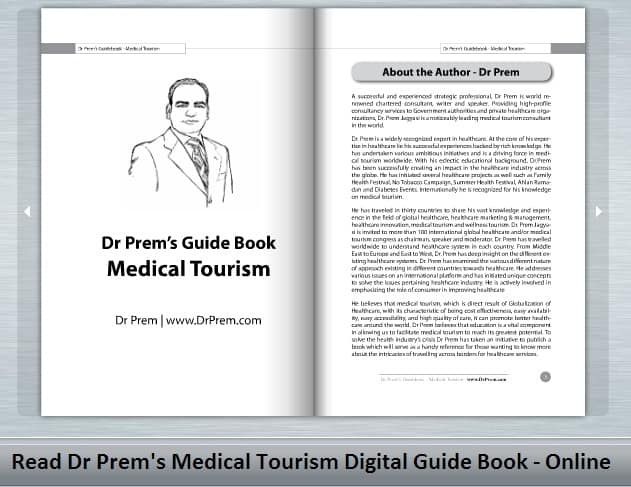Traveling to a different country for medical attention requires some vigilance on part of the medical tourists. It is not merely the health and medical factors that should be considered. Legal factors, monetary and insurance policies, as well as need to ascertain the quality of treatment are important factors to be kept in mind.
Maintaining quality of healthcare
Every medical tourist does a qualitative analysis before opting for medical travel, and rightly so. The primary concern is to know if the medical tourism facilities are well up to international standards. Usually, the healthcare facilities under medical tourism industry try attracting medical tourists with the promise of highest level of quality care as demonstrated by international standards. However, there sometimes remain discrepancies if we compare facilities offered in developed countries to what the developing countries offer.
A cause of concern for medical tourists is to know if the affiliate centers to the accredited medical facility operate at the same level of quality as is set by the accrediting authorities.
Authenticating qualifications of doctor/surgeon
A medical tourist might feel the need to verify the qualifications of the physicians and surgeons when considering a medical facility abroad. Having a suitable doctor is important for better results of any treatment.
Knowing everything about the doctors and their qualifications is also important due to other reasons. For example, the chances of one doctor being struck out of the medical register in one country but continuing practice in another country cannot be ruled out.
Most accredited institutions deal with this problem by sending doctor/surgeon profiles to the prospective medical tourist, along with details of their sojourn, and the price quotation. Respectable institutions will often also make it possible for the medical tourist to confirm and crosscheck doctor profile documents, should they wish for it.
Incorrect estimation of costs
Patients often end up facing trouble due to incorrect estimation of cost involved in medical tourism. Potential medical tourists should get the right information about the total cost involved before seeking healthcare abroad. Before entering into an agreement, potential medical tourists should understand that the overall cost would include the expenses for treatment, travel, accommodation and other hidden hospital treatment expenses.
Getting the right estimation will help them avoid any unlikely situation arising due to lack of funds on a foreign land.
Insurance coverage
Insurance coverage is a wise move. Not barely in terms of expense, but also as a protection in the event of anything going wrong. Insurance is just like a protective cover that will reduce your financial and mental burden. The need of insurance is even higher during treatments, particularly when one seeks treatment in a medical facility abroad.
An increasing number of insurance companies are now offering their services to medical tourists. It is important for the tourist to understand the requirements of their insurance cover, and find an institution acceptable to their insurance provider. Most of the time, the latter is taken care of by the company itself, by providing their customers guidance towards the selection of a medical facility. Advantage of such an arrangement to the visitor is that quality of care is generally ensured in the recommended institutes. The coverage however, remains limited.
On the downside, many capable hospitals in developing countries offering healthcare to medical tourists are not a part of the network of payers of the developed markets. This results in lack of opportunity for many medical tourism facilities to work directly with the insurance companies and other healthcare funding providers in the market.
Documentation and Visa
To be certain, it is mere formalities like documentation and visa that trouble medical tourists the most. These processes often move slowly, and to someone keen on getting treatment as soon as possible, the insipid process might as well seem like a lifetime. Some countries might also insist on interviews before providing a visa, which might seem like a nuisance to the prospective tourists. These processes do often require mounds of documentation that will further discourage the medical tourist.
Fortunately, most of the preferred medical tourism destinations are well aware of this problem and are working to cut through the bureaucratic red tape. Many countries now offer “Medical Visa,” a visa especially designed for medical tourists. The idea is to make the process more bearable and less taxing to the medical tourist. While progress has been slow, things certainly are taking a turn for the better.











